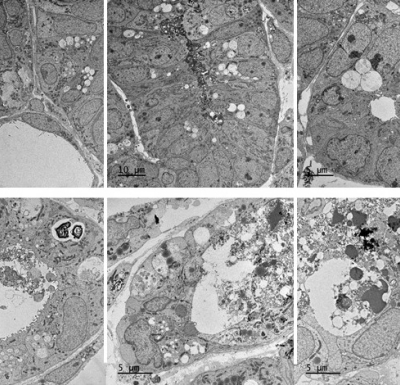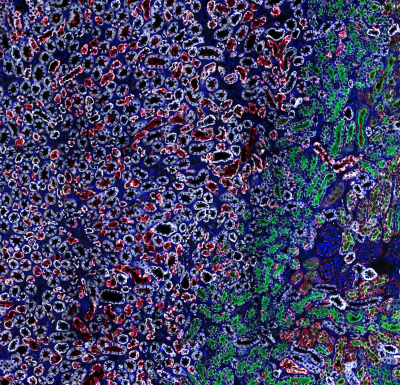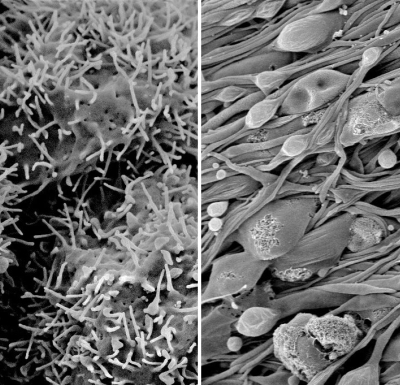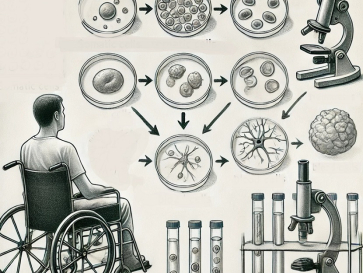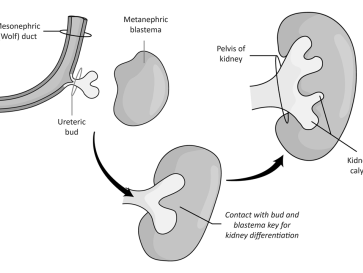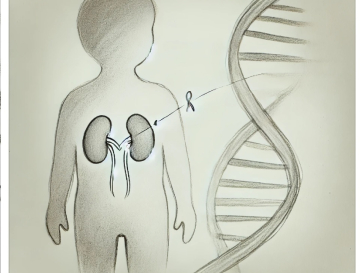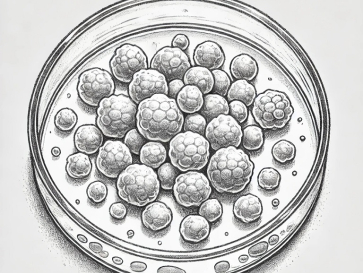Stem cells and Development
Human pluripotent stem cells (hPSCs) are a unique type of cells that can differentiate in vitro into nearly any cell type found in both the embryo and adult. Their ability to differentiate, combined with their unlimited capacity for self-renewal, makes hPSCs an invaluable resource for regenerative medicine and an essential tool for studying embryonic development and disease modeling.
Our lab leverages the unique properties of hPSCs to model developmental genetic kidney disorders and diseases caused by mutations in nuclear envelope genes.
Additionally, we are working to enhance kidney disease modeling by improving the maturation of kidney organoids derived from hPSCs.
As a complementary area of our stem cell-based kidney research, we collaborate with other laboratories to explore novel therapeutic strategies for developmental kidney disorders and pediatric kidney cancers.
Alongside our in-vitro studies, we employ transgenic mouse models to gain deeper insights into kidney development.

